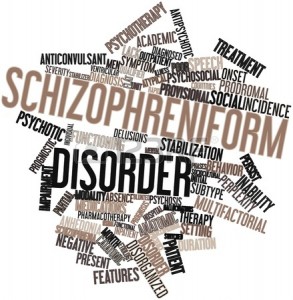Ineffective Assistance Of Counsel:
What Information Does Defense Counsel Have To Provide To The Expert
People v Henderson
New York Court of Appeals
2016 NY Slip Op 03649
Decided on May 10, 2016
Defense counsel is not ineffective for failing to provide an expert witness with every piece of information that conceivably aids the expert in reaching his or her conclusion, even where, as here, the expert admits that such information would have been useful and important
Issue: Whether a defense counsel was ineffective when he failed to provide the expert with photographs and hospital records of the victims stab wounds in support of a defense that the defendant suffered from a schizofreniform disorder.
Holding: ?The Court of Appeals held that defendant received meaningful representation. There is no evidence on this record of what information forensic experts ordinarily require in order to arrive at an expert conclusion, or what information the expert requested in this case. Nor is there any evidence of what information an attorney ordinarily would or should provide to such an expert, independently of the experts request.
Therefore, the court held that it is not clear that prevailing professional norms would have required counsel to provide the expert with photographs and hospital records of the victims stab wounds or inform him of the prosecution’s theory of the case, People v Rivera, 71 NY2d 705, 709 [1988].
Facts: Defendant was convicted of attempted murder for repeatedly stabbing a twelve-year-old victim. A struggle between the defendant and the victim ensued and defendant stabbed the victim twenty or twenty-five times and either defendant or his girlfriend cut the victims throat and carved and X into his cheek.
 The victim survived and testified at trial that defendant attacked him with a knife after defendant’s girlfriend called him a snitch for telling his mother that the three had been using marijuana.
The victim survived and testified at trial that defendant attacked him with a knife after defendant’s girlfriend called him a snitch for telling his mother that the three had been using marijuana.
Defendant raised a defense justification and asserted that he lacked the requisite intent to kill or cause injury to the victim. Defendant maintained that he initially struggled with the victim in self-defense and experienced a type of psychotic episode that caused him to black out. Defense counsel called an expert in child and adolescent psychiatry to offer an opinion on defendant’s mental condition. The expert concluded that defendant suffered from a schizophreniform disorder a very severe psychiatric disorder that causes a person to deteriorate mentally but does not require hospitalization. He observed that defendant had a history of behavioral problems and violent outbursts.
According to the expert, defendants disorder, coupled with his use of drugs and alcohol, compromised defendant’s mental state on the night of the crime and prevented him from forming the requisite intent. He testified that the large number of stab wounds defendant inflicted and the random and violent nature of the attack were consistent with someone who had experienced a psychotic episode brought on by schizophreniform disorder and with defendant’s testimony that he blacked out.
The expert acknowledged that he had not seen photographs of the victim’s stab wounds or his emergency room records, but that he had reviewed the lead investigators statements about the wounds and the defense counsel had informed him they were all over the place. He also stated that he knew the victim had been stabbed multiple times in the interior and exterior jugular veins, chest, back and legs.
When asked by the prosecutor whether he was aware that the Peoples theory of motive was that the defendant stabbed the victim in retaliation for snitching, the expert indicated that he was not and that such information could and could not necessarily change his opinion.
 Defense counsel argued that the photographs of the victims wounds were irrelevant to the experts opinions of defendant’s mental state and there was no need to share them with him; she hired him as a psychiatrist to evaluate defendant, not evaluate photos of injuries to the complainant. The prosecutor argued in summation that the experts knowledge was incomplete and the diagnosis unsupportable, since he didn’t bother to look at the photos or was not given them and the jury convicted him of all counts. Defendant challenged the judgment of conviction on direct appeal arguing that he received ineffective assistance of counsel; the Appellate Division agreed and reversed holding that the failure to disclose was intentional and possibly misleading. A judge of the Court of Appeals granted the People leave to appeal and the Court of Appeals reversed holding that counsel received meaningful representation.
Defense counsel argued that the photographs of the victims wounds were irrelevant to the experts opinions of defendant’s mental state and there was no need to share them with him; she hired him as a psychiatrist to evaluate defendant, not evaluate photos of injuries to the complainant. The prosecutor argued in summation that the experts knowledge was incomplete and the diagnosis unsupportable, since he didn’t bother to look at the photos or was not given them and the jury convicted him of all counts. Defendant challenged the judgment of conviction on direct appeal arguing that he received ineffective assistance of counsel; the Appellate Division agreed and reversed holding that the failure to disclose was intentional and possibly misleading. A judge of the Court of Appeals granted the People leave to appeal and the Court of Appeals reversed holding that counsel received meaningful representation.
Legal Analysis: The Court of Appeals held that the record as a whole reveals that defendant received meaningful representation, People v Baldi, 54 NY2d 137, 147 [1981].
Here, defense counsel mounted a cogent, albeit unsuccessful multi-pronged defense that highlighted defendant’s psychological condition, drug and alcohol abuse and deeply troubled past. Counsel retained a reputable expert to evaluate defendant and provided that expert with a substantial amount of information, including defendant’s medical and psychiatric records, educational reports and the testimony of the lead investigator in the case.
 Defense counsel’s preparation of its expert was, in every respect, far superior to the witness preparation the Court deemed constitutionally deficient in People v Bennett, 29 NY2d 462 [1972] and People v Oliveras, 21 NY3d 339 [2013], in which counsel either failed to familiarize himself with the relevant facts and law regarding an insanity defense and called two experts who testified that defendant was sane, Bennet, 29 NY2d at 466.
Defense counsel’s preparation of its expert was, in every respect, far superior to the witness preparation the Court deemed constitutionally deficient in People v Bennett, 29 NY2d 462 [1972] and People v Oliveras, 21 NY3d 339 [2013], in which counsel either failed to familiarize himself with the relevant facts and law regarding an insanity defense and called two experts who testified that defendant was sane, Bennet, 29 NY2d at 466.
The Court of Appeals held that defendant failed to demonstrate the absence of strategic or other legitimate explanations for counsel’s alleged shortcomings, People v Benevento,91 NY2d 708, 712[1998].
Here, defense counsel indicated in summation, she believed the pictures of the victim’s stab wounds were inflammatory, unnecessary for the experts evaluation of defendant’s mental state and no more useful that the extensive information he had already been provided. The Court held that she could have reached the same conclusion about the prosecution’s theory of snitching, which counsel vigorously disputed.
The Court of Appeals held that as they have recently held in People v. Pavonne, defense counsel is not ineffective for failing to provide an expert witness with every piece of information that conceivably aids the expert in reaching his or her conclusion, even where, as here, the expert admits that such information would have been useful and important and the prosecutor highlights that admission, 26 NY3d 629, 636, 647 [2015].
The decision whether to provide the expert with the omitted information was a decision that counsel was entitled to make and the Court held that they will not second-guess with the clarity of hindsight, Benevento, 91 NY2d at 712; People v Satterfield, 66 NY2d 796, 799-800 [1985]. It is not for the Court of Appeals to second-guess whether a course chosen by defendant’s counsel was the best for trial strategy, or even a good one, so long as the defendant was afforded meaningful representation.
The Court of Appeals held that defense counsel provided the expert with an accurate description of the victim’s wounds and gave him extensive information that both helped and hurt defendants view of the case, including the opinions of two other experts whose conclusions contradicted his own. This is not a case in which defense counsel wholly failed to provide an expert any basis upon which to develop an opinion, or provided an expert with incorrect information, Pavonne, 26 NY3d at 647.
Accordingly, the Court of Appeals reversed and remitted the case to the Appellate Division, Second Department for consideration of the facts and issues raised but not determined on the appeal to that court.
